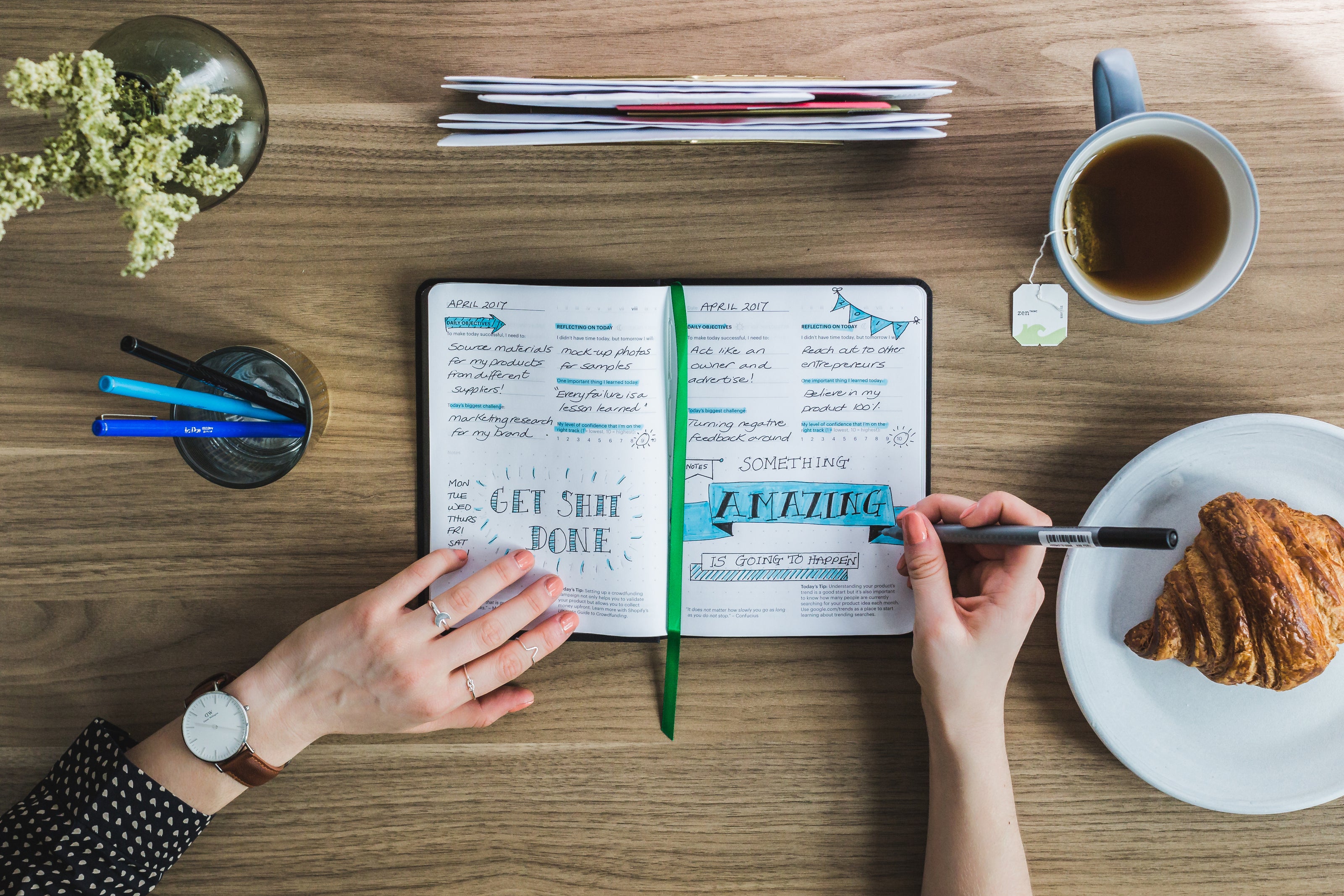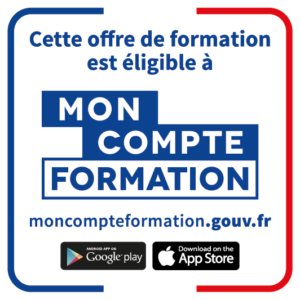
" Artistic Mastery of Aesthetic Care of Hands, Feet and Nails "
This training aims to acquire the skills to perform nail prosthetics services, allowing the use of techniques and products in order to lengthen, reconstruct, beautify or consolidate natural nails, but also to establish a diagnosis in advance and ensure the necessary maintenance of artificial nails, as well as to acquire various nail decoration techniques. It is aimed at beauticians or hairdressers who wish to acquire additional skills in nail prosthetics, people with a project to create a business in nail prosthetics or in a professional activity situation related to the field of aesthetics. If you are passionate about beauty, and are looking for a certified nail prosthetist training for a real profession, our 10-day, 70-hour training, certified quality (Qualiopi), is made for you. In order to benefit from optimal teaching, only 6 places are available per session. Book your place quickly!
Certified nail technician training
This training in detail:

GOALS
OBJECTIVES of nail technician training
- All audiences, no specific prerequisites, all minimum knowledge and skills are included in the training.
- The practice of nail prosthetics (or nail styling) is not subject to the professional qualification requirement provided for by
Article 16 of the law of July 5, 1996, and therefore does not require the holding of a beautician qualification for its practice as the
recalls the National Confederation of Aesthetics and Perfumery.
- On the other hand, a CAP in practical aesthetic care is required to perform manicure treatments.
REQUIRED LEVEL
LEVEL REQUIRED for nail technician training
- All audiences, no specific prerequisites, all minimum knowledge and skills are included in the training.
- The practice of nail prosthetics (or nail styling) is not subject to the professional qualification requirement provided for by
Article 16 of the law of July 5, 1996, and therefore does not require the holding of a beautician qualification for its practice as the
recalls the National Confederation of Aesthetics and Perfumery.
- On the other hand, a CAP in practical aesthetic care is required to perform manicure treatments.
TARGET AUDIENCE
TARGET AUDIENCE for nail technician training
- Employees in the aesthetics field wishing to specialize in nail prosthetics
- Employees in professional retraining
- Individuals starting a business
- Job seeker
- Business manager wishing to specialize in nail prosthetics to expand his catalog of services.
DURATION
DURATION of nail technician training
- 70H / 7H PER DAY
- 10-day face-to-face training (9 a.m.-12 p.m., 1 p.m.-5 p.m.)
PLACES
PLACES available for nail technician training
The number of places available per session is 6 trainees maximum.
TEACHING TEAM
Recognized professional trainers who have received international or global awards. International champion, Judges in renowned competitions.
TECHNICAL AND EDUCATIONAL RESOURCES
• Dedicated and fully equipped training room.
• Tools and products made available to learners.
• Technical file and/or educational support given to learners.
• Synchronous face-to-face.
• Animation by trainers
• An attendance sheet will be signed by the trainee and the trainer for each half-day of training.
• A training certificate will be issued to the trainee at the end of the training.
MONITORING EXECUTION AND EVALUATION OF RESULTS
• Written theoretical exam.
• Practical tests with imposed and randomly selected scenarios.
CERTIFICATION AND VALIDATION
The training is validated by a final examination before a jury, a certificate of completion of training. Upon successful completion, a certification recognized by the state of the BC3 block of the RNCP professional title "Manager of a beauty center for hands, feet and nails" of level 4.
PRICE
- 1980€ (OF Not subject to VAT)
FINANCING CONDITIONS
- This training can be financed in 3X or 4X
- Depending on the profiles, you can obtain a refund with the fafcea or the Opco of your company.
- France Work (Job Center)
- Local Mission
- Nail technician training supported by CPF
Organization of this nail technician training:
Program Details

Day 1
Introduction and Fundamentals of Anatomy (Module 1)
- 9 a.m. to 12 p.m.: Introduction to training, hygiene and safety. Beginning of the fundamentals of the anatomy of hands, feet and nails.
• Presentation of the tools and setting up of the work plan. Instruments, brushes, accessories. Capsules and shapes
called "stencils". Filing equipment. Drying and polymerization equipment. Training equipment. Equipment
complementary.
• Master the hygiene and safety rules. Hygiene and safety. Know the mandatory hygiene measures to be respected, for
your equipment, your customers and yourself. Know the safety measures to protect your health and that of your customers. The
protective equipment.
• Fundamentals of the anatomy of the hands and feet and nails. Presentation of the nail, its role, its functioning, its
Anatomical and dermatological dimension. Theory on the Morphology and structure of the nail apparatus. Physiology of the nail
hands and feet.
- 1 p.m. to 5 p.m.: Continuation of anatomy and introduction to aesthetic products.
• Theory on the Morphology and structure of the nail apparatus. Physiology of the fingernail and toenail. •
Knowing how to choose the right actions in any situation.
• Products used in the profession and their regulations.
• QCM on the skills covered during the day
Day 2
Fundamentals of Aesthetic Products (Module 1)
-
9 a.m. to 12 p.m.: Composition of aesthetic products, interactions and effects on the skin.
• Understand the different forms of cosmetic products.
• Their regulation.
• Main ingredients used in aesthetic products:
cleaning agents, moisturizers, preservatives, perfumes, colorants, etc.
• Product labeling: how to read and interpret labels to understand the composition of products. • Effects and functions of each type of ingredient.
- 1 p.m. to 5 p.m.: Techniques for safe product use.
• Importance of understanding ingredients to ensure safe and effective use of products. Their applications. • Effects
Aesthetic Products on the Skin; Short-term effects: hydration, mattification, radiance, etc. Long-term effects: aging
skin, sensitization, dehydration, etc. Impact of ingredients on different skin types: dry skin, oily skin, sensitive skin
sensitive, etc.
• Case Studies and Practical Exercises Analysis of cosmetic product labels to identify ingredients and their effects
potential on the skin. Case study on skin reactions and interactions between products and the skin. Discussions in
group on best practices for choosing and using aesthetic products according to individual skin needs. •
QCM on the skills covered during the day
Day 3
Diagnostic and Care Techniques (Module 2)
- 9 a.m. to 12 p.m.: Diagnostic techniques for hand and foot care.
• Composition, Diseases & Contraindications.
• Introduction to diagnostic techniques for assessing the condition of the skin and nails of the hands and feet.
• Identification of the main skin problems: dryness, calluses, warts, ingrown toenails, etc.
• Know how to recognize a diseased nail.
• Use of professional tools for examination and evaluation of skin and nails.
• Practice diagnostic techniques through case studies and practical exercises.
- 1 p.m. to 5 p.m.: Specific care protocols according to diagnoses.
• Presentation of care protocols adapted to the different skin diagnoses identified.
• Analysis of clinical cases to understand different diagnostic and treatment scenarios.
• Specific hand care: exfoliation, hydration, cuticle treatment, massage, etc.
• Specific foot care: foot bath, scrub, callus treatment, massage, etc.
Day 4
Diagnostic and Care Techniques (Module 2)
- 9 a.m. to 12 p.m.: Continuation of treatment protocols, practice on mannequins.
• Reminder of diagnostic techniques and treatment protocols taught.
• Practical demonstrations of care techniques and supervision of participants during practice.
• Implementation of specific hand care. - 1 p.m. to 5 p.m.: Evaluation of techniques learned and correction.
• Practical diagnostic exercises on models or between participants.
• Group discussions on best practices and challenges encountered in the diagnosis and care of hands and feet. •
Opportunity for participants to ask questions and receive additional guidance
Day 5
Aesthetic Care Practices (Module 3)
- 9 a.m. to 12 p.m.: Intensive practice of hand care and nail beauty
• Nail Preparation and Strengthening The secrets of perfect nail preparation: cleaning, filing, cuticles, etc.
Nail strengthening techniques: using the right products to strengthen and protect natural nails.
Application of the specific technique for applying semi-permanent varnish: base, color, finish. Creation of the French
Manicure Trainer demonstration on nail preparation and strengthening.
• Practical Learning Workshops Practical exercises on capsules and on realistic training hands to put into practice
preparation and reinforcement techniques. Individual advice and corrections from the instructor to improve the
technical.
- 1 p.m. to 5 p.m.: Intensive practice of foot care and beauty.
• Review of basic foot care steps: soaking, exfoliation, callus treatment, nail cutting and filing, care
cuticles, massage, etc. Deepening of specific massage techniques for the feet for relaxation
maximum and improved blood circulation. Use of professional tools for effective treatment of problems
common foot problems: calluses, corns, ingrown toenails, etc. Practical demonstrations of advanced techniques and tips for a
precise execution.
• Application of Semi-Permanent Varnish on Nails Introduction to the basics of applying semi-permanent varnish: preparation of the
nails, application of base coat, color and finish. Selection of colors and finishes adapted to the client's preferences
and current trends. Techniques for a uniform and smudge-free application of semi-permanent varnish. Tips for
ensure long-lasting hold and a professional finish
Day 6
Aesthetic Care Practices (Module 3)
-
9 a.m. to 12 p.m.: Advanced techniques for nail extensions using paper forms.
• Review of Fundamentals and Care Techniques Summary of the key points covered in previous modules:
Introduction and fundamentals of anatomy. Fundamentals of aesthetic products. Diagnostic and care techniques for
hands and feet. Discussion of the main concepts and techniques learned and their importance in aesthetic practice.
• Theory - The geometry of the nail The different shapes of natural nails. Introduction to the template, learning the different placements. Construction to create solid and aesthetic nail extensions. Proper use of specific equipment and products
at every step of the process.
• Theory and techniques of the nail extension application protocol with shaped papers called "stencils". Introduction to the stencil,
learn the different placements for the different shapes requested. Explanation and demonstration by the trainer on the
extension protocol. Preparation of the natural nail without manicure. Workshops for learning hand techniques
training and on real hands.
-
1:00 p.m. to 5:00 p.m.: Advanced techniques for nail extension with paper forms. • Nail removal and cleaning techniques to ensure a clean base. Air removal to prevent the formation of
bubbles under the extensions. Polishing the natural nail to promote product adhesion. Applying form paper to create
the structure of the extension.
• Intensive Practice and Implementation of Techniques on training hands Practical sessions to put into practice the
preparation, application and filling techniques for nail extensions. Supervision and individualized advice from
the instructor to perfect the participants' technique. Application of products related to the different stages of construction
nail extensions.
• Workshops for learning techniques using the training hand and real hand.
• Nail creation
Day 7
Aesthetic Care Practices (Module 3)
-
From 9 a.m. to 12 p.m. and from 1 p.m. to 5 p.m.: practice of advanced techniques for nail extensions using paper forms.
• Intensive Practice and Implementation of Techniques on hand model. Practical sessions to put into practice the
preparation, application and filling techniques for nail extensions. Supervision and individualized advice from
the instructor to perfect the participants' technique. Application of products related to the different stages of construction
nail extensions. Application of nail art learned at the trainee's choice.
• Discussion of challenges encountered and successes during practice.
• Review of key points and best practices for successful nail extension application.
Day 8
Training, Supervision and Coordination of the Team for Optimal Quality of Service (Module 4)
- 9:00 a.m. - 12:00 p.m.: Principles of Team Management and Staff Training
• Introduction: Understand the importance of training, supervising and coordinating a team of practitioners to ensure the quality of
services and customer satisfaction. Acquire specific skills to take into account a possible disability and
adapt your speech and practices accordingly. Raise awareness of adequate reception in disability situations to guarantee a
positive experience for all customers.
• Introduction to team management principles to ensure optimal quality of service.
• Staff training techniques adapted to ensure high quality services.
• Awareness of adapting discourse and practices to take into account possible disabilities among customers.
- 1:00 p.m. - 5:00 p.m.: Supervision and Coordination of the Team and Awareness of Reception in Situations of
Disability
• 1:00 p.m. - 3:00 p.m.: Approach to team supervision and coordination to ensure consistency and effectiveness of
services. Communication techniques to coordinate tasks and solve problems within the team.
Awareness of adapting practices and procedures to meet the needs of customers with disabilities.
• 3:00 p.m. - 5:00 p.m.: Awareness of the different types of disability and their implications for service delivery. Training at
adequate reception in a situation of disability: inclusive communication, spatial planning, personalized assistance, etc.
Practical exercises to develop reception skills adapted to different types of disability.
Day 9
Assessments and Professional Situation (Module 5)
- 9 a.m. to 12 p.m.: General review of all modules and preparation for assessments.
- 1 p.m. to 5 p.m.: Written theoretical exams.
Day 10
Assessments and Professional Situation (Module 5)
- 9 a.m. to 12 p.m.: Practical assessments on foot care and the application of semi-permanent varnish. • Professional situation on
model. - 1 p.m. to 5 p.m.: Practical assessments on nail care and extensions on paper forms. • Professional situation on
model
Participate in nail technician training:
Where and when to train?

Nail technician training in TRETS (Bouches-du-Rhône)
Nail technician training in Rousset (Bouche du Rhône)
Nail technician training in Valenciennes (North)
- Training from 02/03/2025 to 02/14/2025 (Registration closes on 01/10/2025)
- Training from 03/10/2025 to 03/21/2025 (Registration closes on 02/10/2025)
- Training from 04/07/2025 to 04/18/2025 (Registration closes on 03/15/2025)
- Training from 05/07/2025 to 05/16/2025 (Registration closes on 04/10/2025)
- Training from 02/06/2025 to 13/06/2025 (Registration closes on 10/05/2025)
Chalon-sur-Saône ( Saône et Loire)
- Formation du 14/04/2025 au 25/04/2025 ( Clôture des inscriptions le 15/03/2025 )
- Formation du 12/05/2025 au 23/05/2025 ( Clôture des inscriptions le 13/04/2025 )
- Formation du 16/06/2025 au 27/06/2025 ( Clôture des inscriptions le 17/05/2025
- Formation du 21/07/2025 au 01/08/2025 ( Clôture des inscriptions le 22/06/2025)
- Formation du 15/09/2025 au 26/09/2025 ( Clôture des inscriptions le 15/08/2025)

nail technician training supported by CPF
